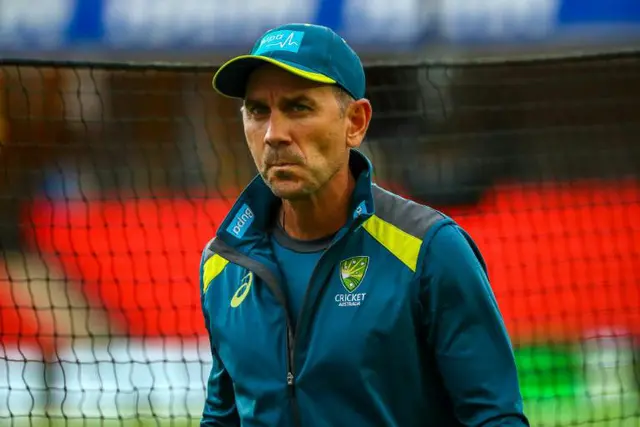Rio de Janeiro's samba parades began late Sunday in a chance for a city struggling with violence and poverty to stage the "greatest show on Earth" -- and to rage at unpopular politicians.
The two-night extravaganza began in the Sambodromo, where 72,000 spectators sat in sweltering heat, with many thousands more milling around outside selling drinks, putting on costumes or simply soaking up the atmosphere because they were unable to get tickets.
Thirteen samba schools from the top division were facing off in a talent contest taken every bit as seriously as the city's other great love -- football.
Each school gets about an hour to parade through the purpose-built stadium with about 3,000 dancers, singers and drummers dressed in over-the-top costumes. Last year, the contest ended in a draw between the Mocidade and Portela schools.
Organizers may not be exaggerating when they claim the parades to be the world's greatest show.
With breathtakingly complex and dramatic floats, the thunder of drumming and the heated performances of nearly naked female and male dancers, there's something for everyone.
However, an undercurrent of anger is running through the fun this year, with three of the schools taking openly critical stands against the political and corruption crisis that has engulfed Latin America's biggest country over the last four years.
Crisis carnival
Brazilian soldiers frisk a resident during an operation in Rio de Janeiro's City of God favela, just days before Rio opened its samba parades
Even by Brazil's deteriorating standards, Rio de Janeiro is in particularly deep financial trouble, while crime in many areas is out of control. Two children were among the dead in shootings last week and a policeman was reported Sunday to have been shot dead in a suburb -- the 16th officer killed already this year.
So although 17,000 police have been deployed for the carnival, large parts of Rio, like Rocinha or City of God, are virtual no-go zones for both police and tourists. Locals in those areas, dubbed favelas, have to survive in the crossfire of drug gangs and the security forces.
To make matters worse for the passionate carnival-going public, Mayor Marcelo Crivella -- a bishop in the evangelical mega church founded by his billionaire uncle -- has cut subsidies to the annual bash in half.
Unusually for a mayor, he is not even expected to come anywhere near the parades. Although he has not said as much, the snub is widely believed to make clear his distaste for the bared flesh and boozing.
President Dracula
A performer adjusts her costume before the parade of the Imperio Serrano samba school
But maybe Crivella's wise to keep away after all.
The Mangueira samba school will deliver a ribbing to the religious mayor by emblazoning his name across a float in the form of a huge human backside.
Brazilian President Michel Temer -- said by polls to be the most unpopular Brazilian president on record -- will not get away lightly either: the Paraiso do Tuiuti school is depicting him on a float as Dracula.
"I am vampire who is meant to represent the president of the republic," said Leo Morais, 39, a history teacher as he sat having makeup applied for his role as the undead version of Temer.
Morais, who already had his face painted white and would later don huge black wings, said carnival was a chance for Brazil's poor to speak out.
"The samba schools have a social role," he said. "They speak out for ordinary people."
Paraiso do Tuiuti was also deploying a squadron of people dressed as yellow bath ducks, a symbol of mass demonstrations against corruption and against the government that helped bring down then-president Dilma Rousseff in 2016.
The Beija-Flor samba school will make things even plainer, with dancers dressed as politicians and businessmen behind bars -- a nod to the sprawling Car Wash anti-corruption probe that has put many powerful Brazilians in prison.
(AFP)
 简体中文
简体中文

